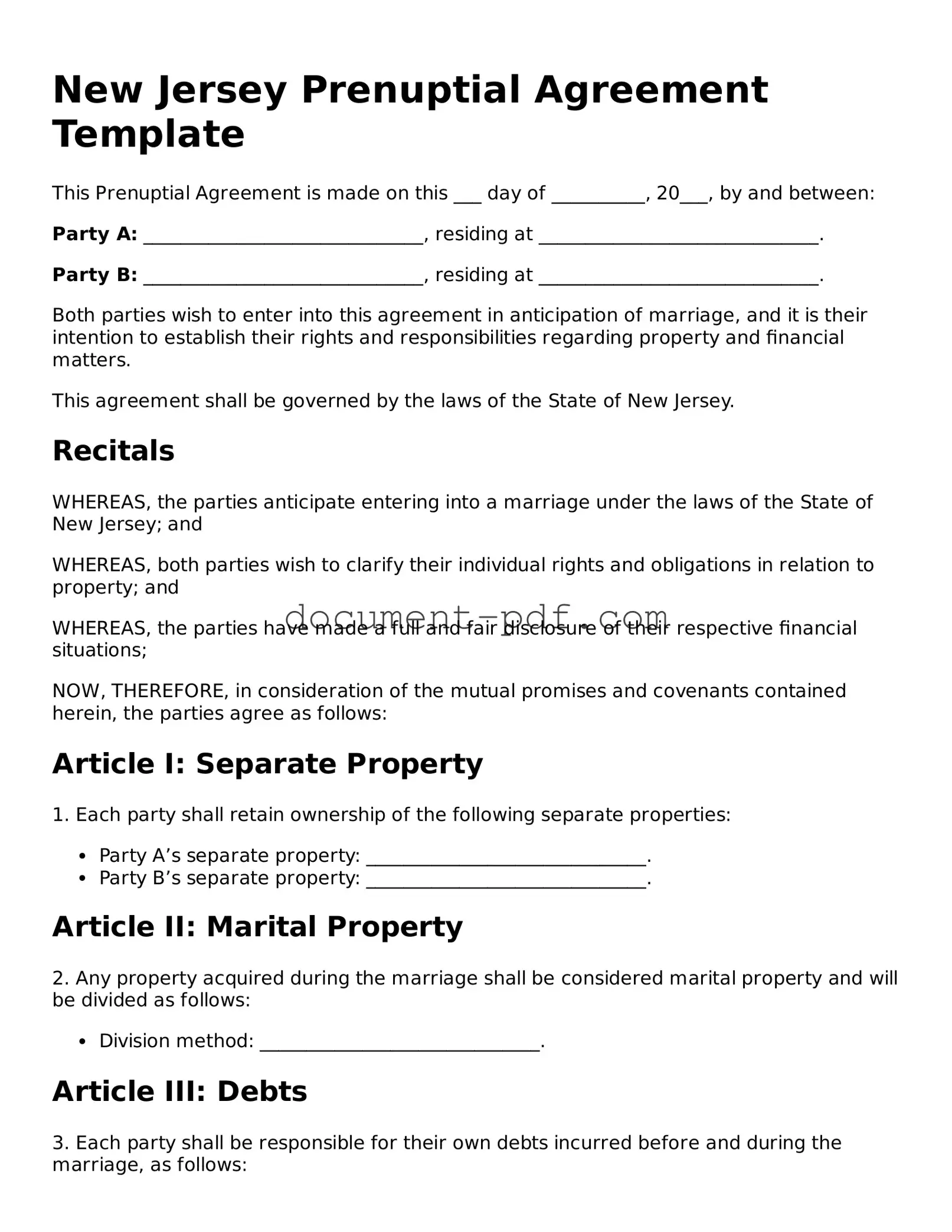Attorney-Verified New Jersey Prenuptial Agreement Template
A New Jersey Prenuptial Agreement form is a legal document that outlines the financial and property rights of each spouse in the event of divorce or separation. This agreement helps couples clarify their expectations and protect their individual assets before entering into marriage. Understanding the importance of this form is crucial for anyone considering marriage in New Jersey.
Ready to take the next step? Fill out the Prenuptial Agreement form by clicking the button below.
Access Prenuptial Agreement Editor Here

Attorney-Verified New Jersey Prenuptial Agreement Template
Access Prenuptial Agreement Editor Here
Finish the form without slowing down
Edit your Prenuptial Agreement online and download the finished file.
Access Prenuptial Agreement Editor Here
or
Click for PDF Form
